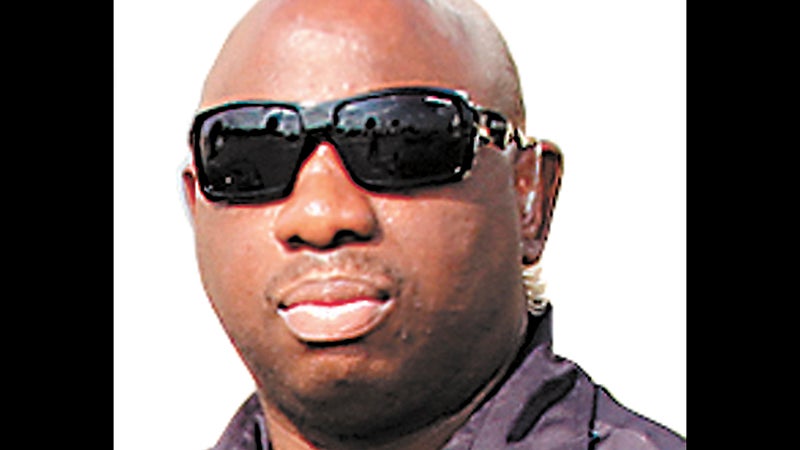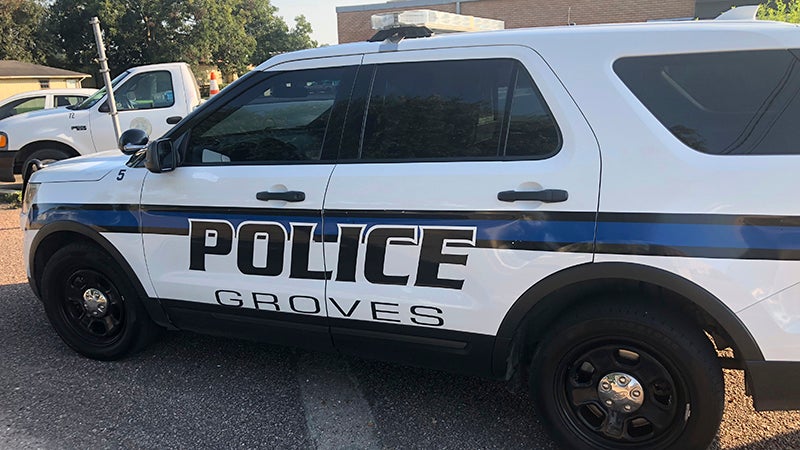ASK A COP — Hazard lamps no excuse for no-parking zone
Published 12:08 am Tuesday, April 21, 2020

- Officer Rickey Antoine
|
Getting your Trinity Audio player ready...
|
Jeffery from Lumberton asks: I witness drivers who stop in spaces that are stripped for no parking and also in front of businesses, and the one thing they all have in common is they turn on their flashers. I have read where you said the use of flashers were for slower-moving vehicles, so is it legal and permissible to turn on flashers to park in non-parking areas?
Answer: Out of all the equipment that’s located on a motor vehicle, I believe the hazards lamps are the most intriguing. Drivers who park in non-parking spaces and activate their hazard lamps know for certain they are illegally parking or they wouldn’t turn on the lamps. It is NOT permissible in the great state of Texas to activate the mighty hazard lamps to exit your vehicle and park in a no-parking zone. What’s funny is the hazard lamps are like beacons, beckoning law enforcement to come see about said vehicle with its hazard lamp activated. Basically, motorists who turn on hazards lamps in fire lanes are signaling the police, telling them, “Come and see me parking where it’s illegal for me to park!”
Jamie from Port Arthur asks: I was caught speeding and issued a speeding ticket rightfully so by a Texas Police two years ago. I don’t fault that officer in the least bit, because he only reacted to my action. From now on, my goal is to keep officers with nothing to do when I drive my vehicle. I pleaded guilty in court and paid for my ticket. My question is how many points did I get on my license for getting the speeding ticket and how long will it stay on my license?
Answer: I like the way you said, when you drive you’re not going to give the officers anything to do. That has to become a driving behavior that’s developed, because that type of driving mentality behind the wheel doesn’t develop overnight. Many motorists have developed this mindset after an unscheduled meeting with a law enforcement officer who was working to provide safe travel for all citizens on the roadways. If you only received a speeding ticket, which is a moving violation in the state of Texas, two points were assigned to your driving record. Two points are assigned to every moving violation conviction in the state of Texas. If you were involved in a motor vehicle crash, and you receive a citation, three points per conviction in a court of law are assigned to your driving record. Texas is pretty clear on its license point system, and points remain on driving record for three years from the date of the conviction.
Mel from Port Neches asks: I am writing to find out the difference between a DWI and a DUI. I always hear about DWIs, which stands for Driving While Intoxicated, and DUI stands for Driving Under the Influence. Are they the same thing, just said differently?
Answer: First off, a DWI, which stands for Driving While Intoxicated, refers to someone 21 years of age and greater. A DUI, which stands for Driving Under the Influence, includes all motorists who are under the age of 21 when charged. When a minor is charged with his/her first DUI under Texas law, they have “any detectable amount of alcohol in his/her system” while operating a motor vehicle. Driving Under the Influence is considered a Class C offense in Texas. The first time you are stopped for drinking and driving, you could face the following penalties: up to a $500 fine, a 60-day Driver License suspension, 20 to 40 hours of community service or mandatory alcohol-awareness classes. Now if you’re 17 years of age or older, and are pulled over for drinking and driving with a blood or breath alcohol concentration (BAC) of .08 or greater, you could face: up to a $2,000 fine, 3 to 180 days in jail or a Driver License suspension for 90 days to a year. Texas has zero tolerance on minors drinking while driving. Now, a DWI in Texas is when a person is legally intoxicated and may be arrested and charged with Driving While Intoxicated (DWI) with a .08 BAC (blood or breath alcohol concentration). A person can also be intoxicated if impaired due to other drugs regardless of BAC. If convicted, they face a penalty of a fine of up to $2,000, 3 days to 180 days in jail, suspension of Driver License up to a year, and an annual fee of $1,000 or $2,000 for three years to retain Driver License.
Join Officer Antoine for Ask A Cop Live on KSAP 96.9 FM “The Breeze” every Tuesday from 1 to 2 p.m. as Officer Antoine discusses the Ask A Cop article. You can also tune in at ksapthebreeze.org. Ask your question live at 409-982-0247. Email your questions to Rickey.Antoine@portarthurtx.gov, call 409-983-8673 and leave a message or mail them to: Ofc. Rickey Antoine, 645 4th Street, Port Arthur, Texas, 77640. If you happen to see me in public you can Ask A Cop!





